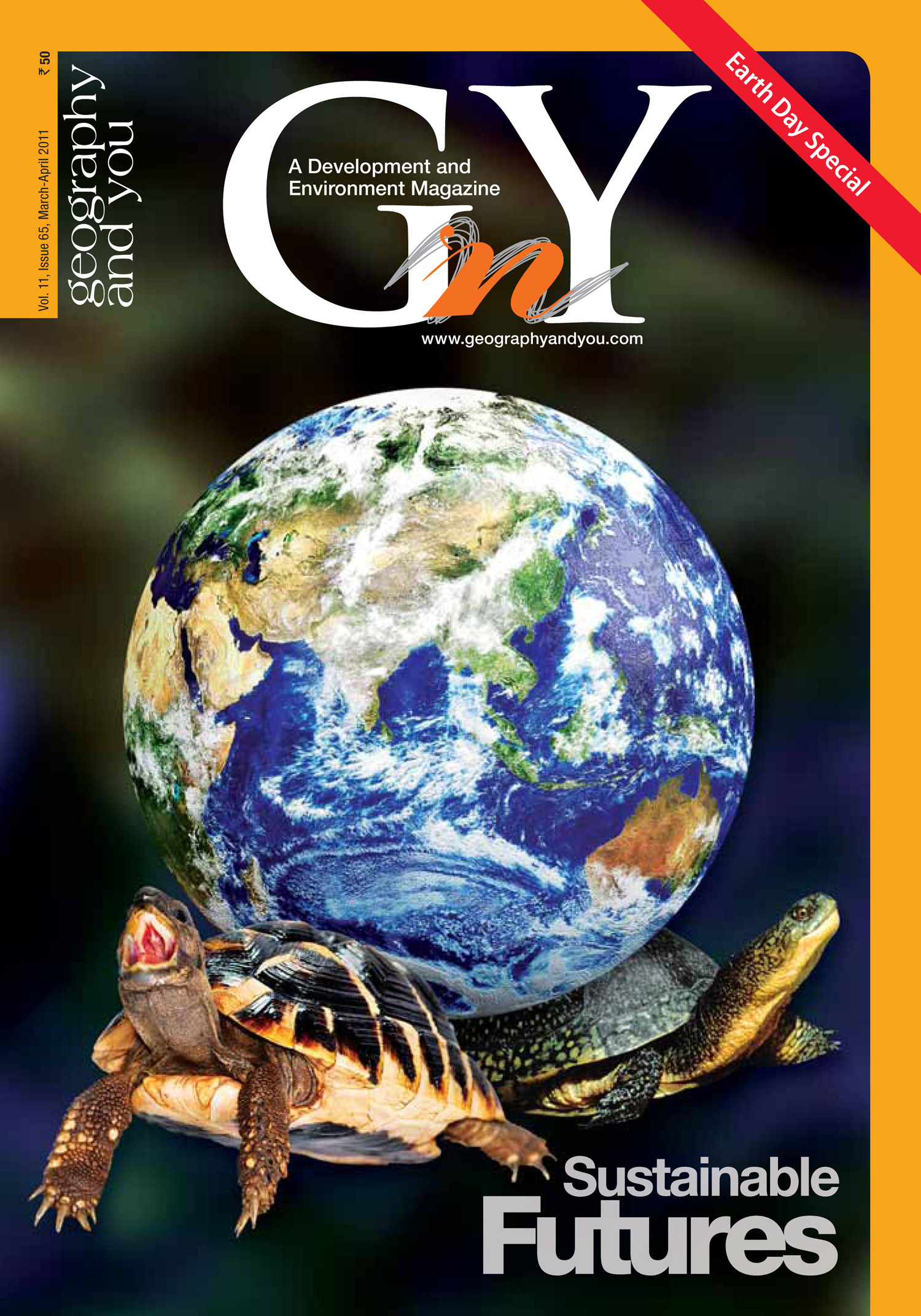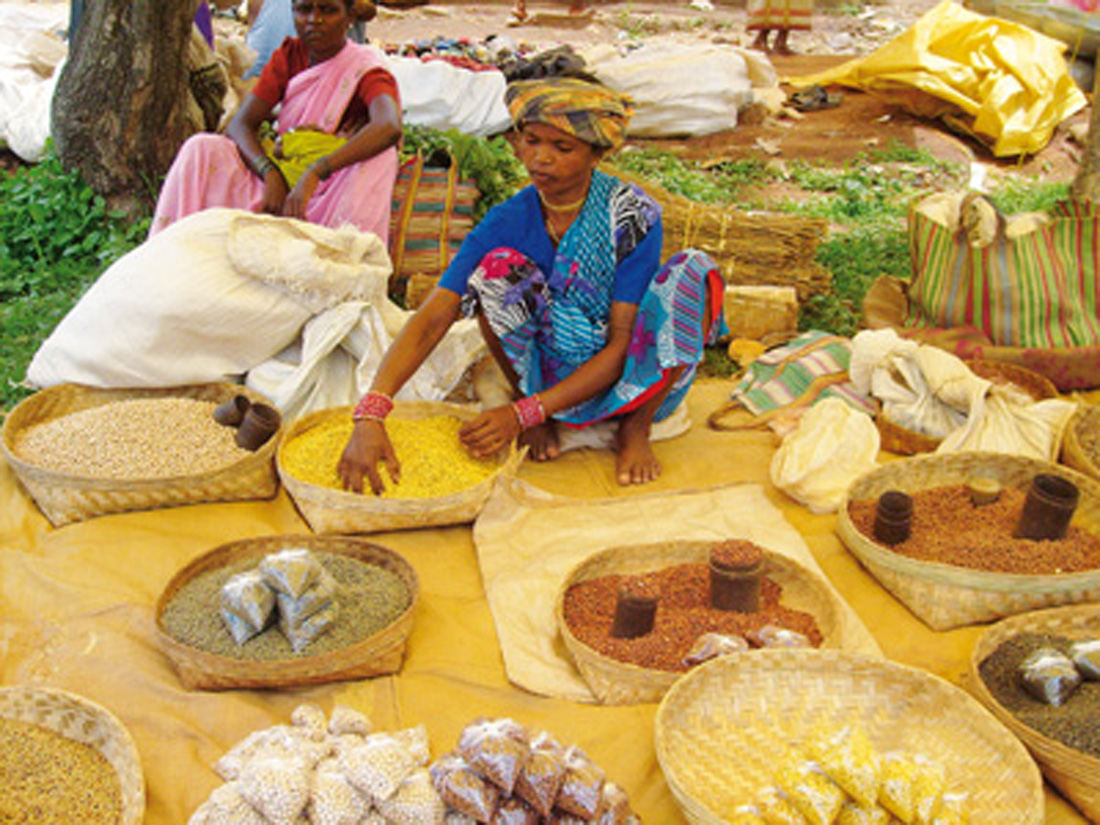
Inside this issue
The living planet
With overexploitation of biodiversity it is pertinent to create an economic stake in conservation and in this context rights of the primary conservers for recognition and reward assume importance. The pathway to an era of biohappiness is rooted in the principles of ethics and equity in benefit sharing.
Bioculturalism is the acknowledgement that biological diversity is linked with cultural diversity in knowledges, languages and practice, and that sustaining both is necessary for ecological and cultural well being. It is an emerging term and concept that marks a radical step to bring varied cultural values explicitly into debate and practice regarding nature conservation.
A commitment is required, not just from individuals but also countries and the respective governments to put an end to the destruction of biodiversity.
The impact of global climate change on marine resources is inadequately understood. In order to cope with the adverse effects, a creative participatory approach that not only checks the unabated commercialisation and overuse, but is also sensitive towards the needs of the fishing community is a must.
Forging an organic connection between nature and women has an inadvertent outcome - some issues become women’s issues and are either sidelined in the planning process or are seen as the exclusive domain of women, without proper understanding of entrenched power asymmetries between men and women.
Human intervention affects the mutual interdependencies within the ecosystems and ecosystem services that do not necessarily fall within the radar of public imagination. It is necessary to understand the nuanced connections for a better understanding of environmental sustainability in sync with human actions.
Environmental change is affecting food security, particularly for small farmers living on the margins. It is estimated that worldwide around 850 million people are chronically hungry and six million children presently die of hunger every year. Of the 800 million undernourished individuals worldwide, over 60 per cent are in Asia and 28 per cent in the African continent.
The problems in cities seem to be getting worse faster than improvements from planning strategies. Sustainability for cities means reducing the ecological footprint whilst simultaneously improving the quality of life.
Adding a spatial component to the new integrated research will help to manage not only the resources on the earth but also the earth systems.
Report
The Response of UNESCO’s International Hydrological Programme
The dynamic earth
In Japan, the Earthquake Early Warning system played a crucial role in saving thousands of lives. India is also striving to deploy such a system and forecast earthquakes.
With the rapid urbanisation, motorisation and industrialisation in India, air pollution specially fine particulate matter and air toxins have become a threat to the environment in general and human health in particular.
Three aspects are highlighted - trade can make a substantial impact on water security policies, the organisational and financial support systems for community based organisations are still not a part of the mainstream policy reform agenda and the standards for human water consumption needs are somewhat opaque.
The developed and developing countries have differed on protocol and regulatory mechanisms of climate negotiations essentially because of varying geophysical specificities and countries’ strategies of economic development. The creation of an apex institution in sync with global consensus which can work out precise and transparent indices to assess the scale and effectiveness of adaptation/mitigation efforts for a more meaningful dialogue is suggested.
In the present, the top three environmental issues facing the Thar are water availability, land quality and dust emission. While dwindling water reserves call for urgent attention to water management, threats of global warming and population pressure are not only deteriorating the land condition, but also increasing the sand mobility and atmospheric dust load.
An unprecedented rain event on 26-27 July 2005 at Mumbai motivated several research programmes on point-and-area-averaged extreme rainfalls to understand the association between atmospheric circulation and extreme rainfall.
The new world
Creative Climate is a project that hopes to build a huge living archive of experiences and ideas that respond to a host of environmental issues and challenges being faced by people around the world.
There appears to be a consensus now among climate scientists that man has significantly altered his environment by indiscriminate burning of fossil fuels; and this anthropogenic effect on climate has exceeded solar heating of the earth in the past two decades. Advanced models of climate have clearly shown that the unprecedented high temperatures recorded in the late nineties could not be explained if man made changes in the atmospheric chemistry are not taken into account. Therefore, it is time that we think about possible ways of coping with a warmer world in the near future.
There is a need to emphatically acknowledge the Antarctic as a ‘global knowledge commons’ and put into place a new profile of Asia in relation to the Antarctic. The challenge is to transform the contentious and contested assertions of territoriality to collectively shared norms of trusteeship so that a reinvigorated, Antarctic Treaty Secretariat remains effective enough to realise the noble objectives enshrined in the preamble to the Antarctic Treaty.
Mitigating the climate change challenge presents an unprecedented opportunity to build a prosperous, clean energy economy. The process has begun and it is so terribly exciting in its sheer scope, especially for the invention and creativity that it is spawning around the world.
IN CONVERSATION WITH
Dr Shailesh Nayak, Secretary Ministry of Earth Sciences and Chairman, Earth Commission.
In brief
Dear readers, Work towards reducing your footprint....and no, we are not campaigning to revive the near forgotten methods of Chinese foot binding, neither are we catching on to the size zero fad amongst footsizes. We are only suggesting that living simply, enveloped in the heat and dust of our belo

